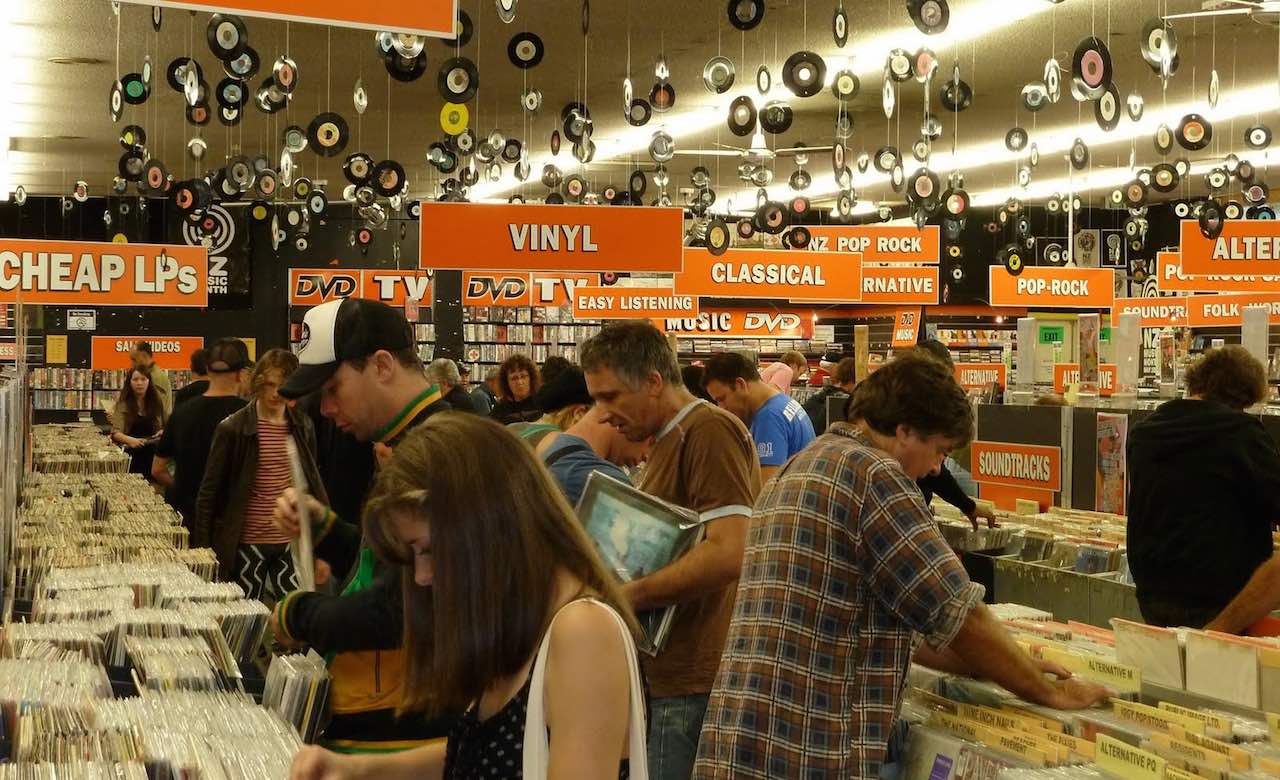Real Groovy Queen Street Set For Demolition
Not so groovy.
Reports are flowing in that the iconic building housing independent music retailer Real Groovy Records may face demolition to make way for the construction of an apartment block.
The record store was founded in 1981 by Chris Hart and Chris Priestley. It settled in the current location at 438 Queen Street in 1991 to accommodate the growing business. The building started as a car dealership in the 1920s and in WWII was used as a ballroom.
Real Groovy founder and Joint Managing Director Chris Hart posted a statement on the store's Facebook page, “After 25 years on Queen St, it’s time for Real Groovy to relocate – the prominent building at 438 is to be demolished to allow construction of an apartment block. It’s been an amazing location for us. It’s a huge space, it’s a great old building, and it’s on Queen St”.”
Co-owner Marty O’Donnell, who came on board in 1996, pointed out to website Cheese on Toast that the sale of the property to developer Conrad Properties is currently a conditional agreement. He also confirmed that if the sale does go ahead the store will vacate the premises early January 2016.
Conrad Properties said it was about four weeks away from publicly launching the development of more than 200 apartments, with shops on the street level.
O’Donnell said it would be an opportunity to re-shape the business, “We still want to carry the same product mix: music, movies, books, pop-culture merchandise and other weird stuff, and we’ll continue to grow the range of vinyl and turntables and look for new categories that fit with the brand.”
The record store, which is notably the country's largest, hasn't been shy of ups and downs. It evolved into a franchise after acquiring Echo Music in 2004, before eventually going into receivership four years later. The Christchurch operation was also unable to reopen due to irrepairable damage from the 2011 earthquakes. The Auckland branch was the only store to survive the crippling grasp of the digital music industry and was saved by enthusiastic investors. It and came back stronger than ever, selling new, rare and second-hand music, as well as clothing, books and knick knacks.
Despite the relocation, the future looks promising for the business. They report that sales of LP records have more than doubled for each of the past five years, with vinyl sales now several times higher than those of CDs, and quality turntable sales continuing to rise.






